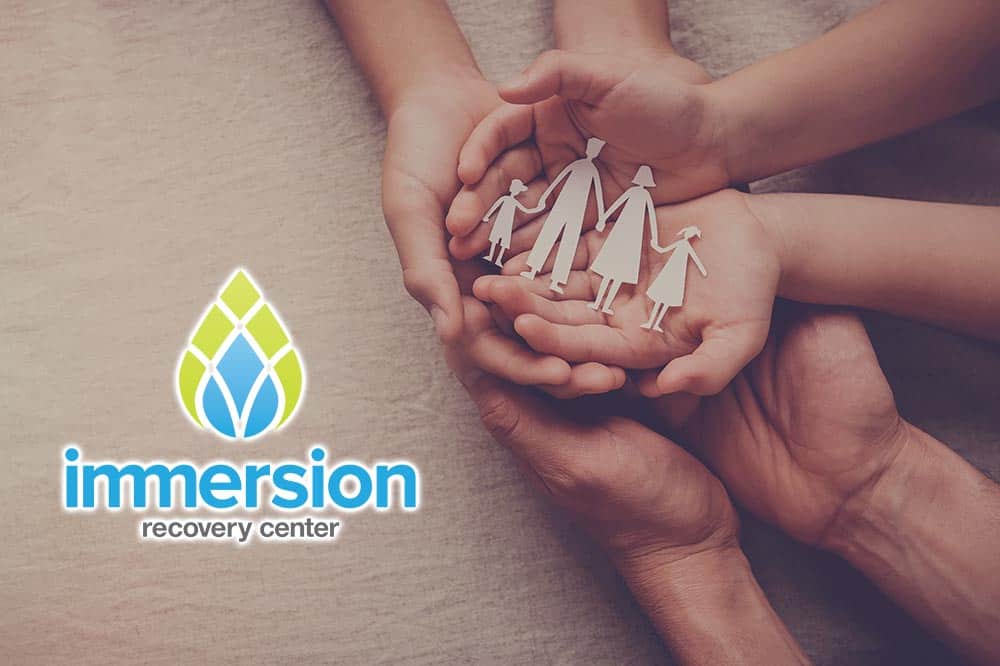Family Dynamics
How the Family System Changes From Addiction
How the Family System Changes From Addiction
When a person falls victim to substance dependency, they begin using their substance of choice compulsively. They often lose all semblance of choice over how much they ingest and how often they get drunk or high; their substance of choice begins to completely dictate how they live their lives. The lying, manipulating and emotional torment often come at the expense of those closest to the addict or alcoholic. In most cases, those closest are the immediate family members.
If you have watched someone you love struggle with active addiction for any length of time you have likely begun to feel the emotional and psychological impact. Long sleepless nights, constant fear for your loved one’s well-being… the list goes on. The impact on each individual family member is profound. The way each member of the family functions begins to shift, and what was once a healthy family dynamic begins to crumble.
At Immersion Recovery Center we place a strong emphasis on the importance of family therapy. Our family program is unique because it focuses on each individual member of the family, providing them with the resources and services they need to focus on their own healing. To learn more about our family-oriented recovery program, contact us today.
About Addiction & The Family
Living under the same roof as a person who has been struggling with addiction almost always leaves a lasting emotional and psychological impact. Not only are you forced to live in a world of constant chaos and instability, but you likely adopt a set of unhealthy coping mechanisms that could prove detrimental in the long run. Sharon Wegsheider-Cruse, an expert in the field of substance abuse and codependency, identified six primary roles in an addicted household. It is important to understand these roles aren’t usually concrete, and the members of your specific household won’t likely fall into each of the six categories perfectly. There are often discrepancies and overlap. You might relate to two of the roles, or feel as if one of the roles is missing entirely from your specific family. The most important thing to take away is an understanding that everyone who lives under the same roof is deeply and negatively impacted by the substance abuse disorder, and in order for recovery to be achieved every member of the family must heal simultaneously.
At Immersion Recovery Center we focus on healing the family as a unit, restoring the family dynamic to a state of healthy functioning before the treatment process has concluded. In addition to family therapy sessions we offer an intensive Family Workshop facilitated by a licensed therapist with an extensive background in addiction and family dynamics. To learn more about our integrated recovery program, contact us today.
We Are Here For You
Let Us Help You Heal
Our detoxification experience is second to none.
Learn how we can help by speaking with one of our Treatment Advisors today.
Six Common Roles in an Addicted Household
- The Addict or Alcoholic – The addict is the member of the family who is afflicted with a substance abuse disorder. They are the source of the chaos, though they use chemical substances to cope with high stress levels. Over time, as the addictive disorder worsens in severity, the addict pushes their loved ones further and further away. Their actions become entirely unpredictable and they consistently blame others for their problems. They are often in denial and refuse help, insisting they can handle their problems on their own and everyone else should mind their own business.
- The Enabler – The enabler constantly makes excuses for the addict or alcoholic and spends a great deal of time sweeping up the wreckage left in their wake. The enabler often denies that substance use is even a problem, making statements like, “They’re under a lot of pressure at work,” or, “It’s just a phase, it’s going to pass eventually.” The enabler pretends like everything is fine and attempts to hold the family together by any means possible. They also do everything in their power to portray the family as happy and functional to the rest of the world. “Keeping up appearances,” as the saying goes.
- The Hero – This member of the family is a perfectionist and often an extremely hard worker. They are often the “pride and joy” of the family unit and consistently exemplify a strong set of ethics and admirable qualities. They are also extremely hard on themselves and they constantly want to feel in control; not just of their own lives, but of the lives of their loved ones. In an addicted family the Hero typically employs avoidance, not acknowledging the problem and pretending as if it doesn’t exist.
Our Treatment Services Include
- The Scapegoat – This family member might also be called “the black sheep.” It is usually a child who doesn’t fit in and is frequently ridiculed. The Scapegoat gets the majority of the blame for all of the familial issues even when they don’t play an apparent role. This member of the family generally feels socially rejected and like they don’t fit in.
- The Mascot or Clown – This member of the family uses humor as a method of deflection. They are often viewed as immature and irresponsible by other members of the family. They tend to get into trouble often.
- The Lost Child – This member of the family is quiet and doesn’t seek attention the way the Hero or the Mascot does. They keep to themselves and seem to be largely invisible to the other members of the family. The Lost Child uses various methods of escapism including reading books, playing video games and watching television. They are aware of the addictive disorder and of the impact it has on the family unit, but they choose to ignore it to the best of their ability.
Maybe you resonate with one of the six common roles; maybe you resonate with all of them. Regardless of which role you currently fill it is entirely possible to restore a family to a state of healthy functioning. It is important to seek recovery sooner rather than later, otherwise these roles might carry over into other interpersonal relationships. Contact us today to learn more.
Ready To Begin Your Treatment?
Let Us Help Your Family Heal
Our family therapy program is second to none.
Learn how we can help your family by calling a Treatment Advisor now.
Our Family-Oriented Recovery Program
Family therapy sessions are offered to the loved ones of our clients, and they focus on a restoration of healthy family functioning and addiction education. It is important for the loved ones of our clients to understand how addiction works, why it develops, why the symptoms continuously progress when left untreated and which treatment methods are the most effective. Understanding addiction as a chronic condition will undeniably help you come from a more compassionate and patient place.

In addition to family therapy we provide an intensive Family Workshop. Our Family Workshop is a highly involved, three-day workshop overseen by one of our highly trained, licensed therapists. The workshop takes place at our addiction treatment facility in Delray Beach, Florida. Michael Herbert, the group facilitator, has nearly three decades of experience as a drug and alcohol counselor. He is a certified recovery coach, certified addiction counselor and certified interventionist. Herbert has developed an effective and highly involved method of family counseling which is broken up into three main components. These components include understanding the existing family dynamic, breaking down the existing family unit, understanding the role of each individual family member, and ultimately restructuring the family dynamic into something healthy, functional and beneficial for all involved. At Immersion Recovery Center our main priority is equipping each of our clients with the tools they need in order to maintain sobriety for years to come. In order for recovery to be as fulfilling as possible, the family must heal as a unit.
Begin Healing Now!
Have A Call With One Of Our Treatment Advisors
Don’t Suffer Any Longer
Contact Us Today to Learn More
We understand how painful it can be to watch a loved one struggle with addiction. Many of our staff members have helped a loved one through the early recovery process themselves. The unfortunate fact is no matter how badly you want recovery for your addicted loved one, they have to be willing to receive help at a certain point. Fortunately, there are steps you can take to prompt them in the right direction. At Immersion Recovery Center we offer crisis intervention services for people who are in desperate need of recovery but who remain unwilling to seek professional help on their own accord. To be put into contact with an experienced interventionist in your area or to learn more about our family-oriented recovery program, contact us today.
Get Started Now
Give us a call 24/7
(888) 693-1604

Reviewed for accuracy by :
Susan Shirley
LMHC
Serving as the Inpatient Clinical Director at Immersion Recovery Center, Susan will work directly with staff members, clients, and family members to ensure the clinical program remains as effective and individualized as possible. Susan is no stranger to the fields of behavioral health and addiction. She has over 25 years of experience, working in an inpatient setting, an outpatient setting, acute stabilization and nearly all other settings in the realm of addiction recovery.






















